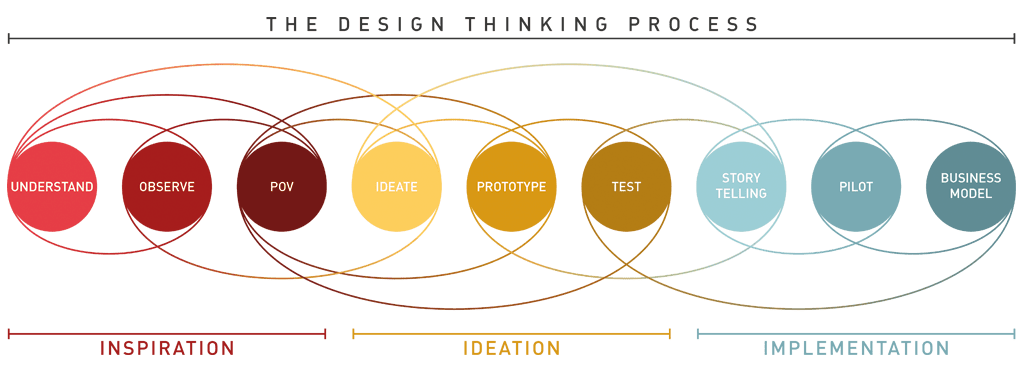Design Thinking
© Copyright – HPI School of Design Thinking
Design Thinking is a collaborative intelligence approach that structures the work of multidisciplinary teams in order to solve complex problems and business challenges.
Created in 1980 and developed since 2005 by Tim Brown & David Kelley, professors at the Hasso Plattner Institute of Design, Stanford (known as the Stanford d.school), Design Thinking is a Human-Centered Design methodology based on the collaborative and iterative co-creation approach of ‘Learning By Doing’.
Although Design Thinking was initially designed to generate solutions for ‘wicked’ problems and innovation think tanks, it can be used to address many business and organizational issues as well (eg. Strategy Management, Human Resources, Change Management, Logistics, Quality Management, Project Management, Operational Excellence, Learning & Training, Marketing & Communications, etc.).
Any issue that requires multiple stakeholders, efficient multi-disciplinary teamwork, or simply just prototype generation can be addressed with this methodology at minimal risk and an affordable price.
There are three main phases in a Design Thinking process: Inspiration, Ideation, and Implementation.

The Inspiration and Ideation phases enable various stakeholders to identify the issue, consider multiple perspectives at the same time, collaborate on a solution, build a cost-effective prototype, and verify its success with real user feedback.
This prototype, built by the stakeholders, is more engaging for the users it has been created for, as well as better understood by its creators. After several iterations, the mature prototype is a well-adapted starting point for the final solution.
Transitioning from the prototype to the final solution will be done with the help of business teams and experts within the particular industry, as indicated in the Implementation phase above.
Novalist Thinking assists clients through the Inspiration and Ideation phases, and delivers all the necessary information for the client to independently facilitate the Implementation phase.